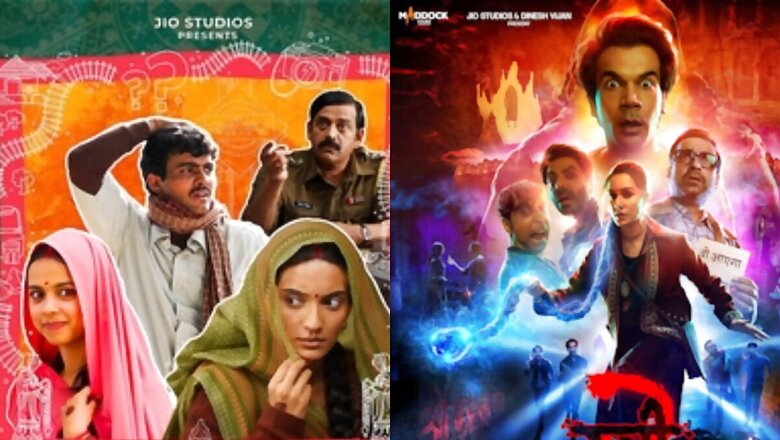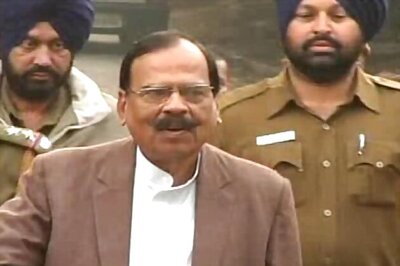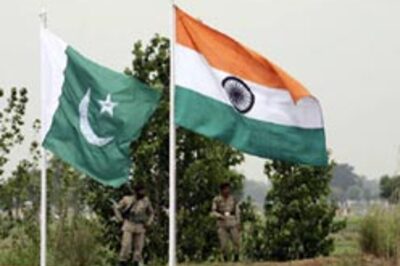
views
Laapataa Ladies and Stree 2 are two Bollywood films that have made headlines for all the right reasons this year. Kiran Rao’s Laapataa Ladies, that broke the OTT records this year, and was also part of a special screening at the Supreme Court, has now been chosen as India’s official entry to the Oscars. On the other hand, Stree 2 is breaking Box Office records, having surpassed the Rs 600-crore mark.
What is it that make some films achieve success? Here’s a deep dive into reasons that make a film a blockbuster:
Dive back into the rich tapestry of Indian literature
Timeless stories from Amar Chitra Katha, Premchand, and many others offer a wealth of inspiration, exploring relationships, entertainment, quirks, and romance. Our sahitya is a deep, untapped ocean that Indian entertainment has yet to fully explore.
Always cast trained and experienced actors in key roles
Even star-driven films need the support of outstanding character actors, those with decades of experience, who can deliver excellence even in the background. Casting based on social media following undermines the emotional depth and connection essential for film and OTT stories.
Chai Pe Charcha
A movie worth recommending is one that sparks discussions, whether within families or on social media. If it generates conversations and resonates in everyday interactions, it’s bound to be a hit. Themes or moments that stay in the public discourse, like 3 Idiots’ “kaamyabi ke peeche mat bhago,” are examples of this lasting impact.
Value to the viewers
Content that adds value to the viewer’s life holds repeat appeal. A film should either emotionally uplift, impart lessons on self-development, or resonate intellectually. When emotions are deeply engaged, the results are significant, as seen in films like 12th Fail and Laapataa Ladies.
Share solutions and life lessons
In our subcontinent, conflict resolution isn’t easy or common, which is why films that offer solutions (Laapataa Ladies), warn of future conflicts (Deewar, Trishul), or remind us of historical lessons often resonate deeply. Entertainment can and should be partly educational. Trust me, this approach can even take you to the Oscars!
Triumph of Good over Evil
Anurag Kashyap once said, “Unfortunately in India, we go to movies to get educated and go to schools to get entertained.” While this may hold some truth, as Indian society often draws lessons from films, it’s crucial that stories end with the triumph of what’s right, rather than what’s merely quirky or dramatic. Create films that mothers would want their children to watch—stories that inspire and uphold values.
Cultural nuances are crucial
In the subcontinent, we hold our dialects, humor, and traditions close to heart. It’s essential to respect these nuances in films. Don’t have characters speak Bihari in a story set in UP or Awadhi in MP. Language is sacred for many, and getting it wrong can offend audiences.
Flirts with the eyes, tugs at the heart
Cinematography is vital to a film’s impact. A great movie should be enjoyable even on mute, with visuals that linger long after the credits roll. Characters should resonate, and dialogues should echo in your mind. Javed Akhtar and Salim Khan are still revered!
The future of cinema (at least for the next five years) belongs to specialists
With an ocean of content available and the pandemic behind us, audiences trust those with demonstrated expertise, excellence, and a track record of consistent performance. Whether it’s a Yash Raj film, a Rajamouli production, or a passionate storyteller willing to take risks, genuine talent will shine. Casual or mediocre content won’t endure—am I wrong?
Care for creative people
Just as Rome and the Taj Mahal weren’t built in a day, artists and passionate filmmakers need time to develop their craft. They are the pride of our industry, and their work reflects the essence of a nation. We must respect this field and its members, understanding that great art takes time to emerge. Consider figures like Rajamouli, whose dedication is a testament to this truth.


















Comments
0 comment